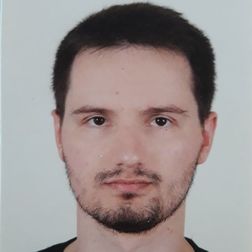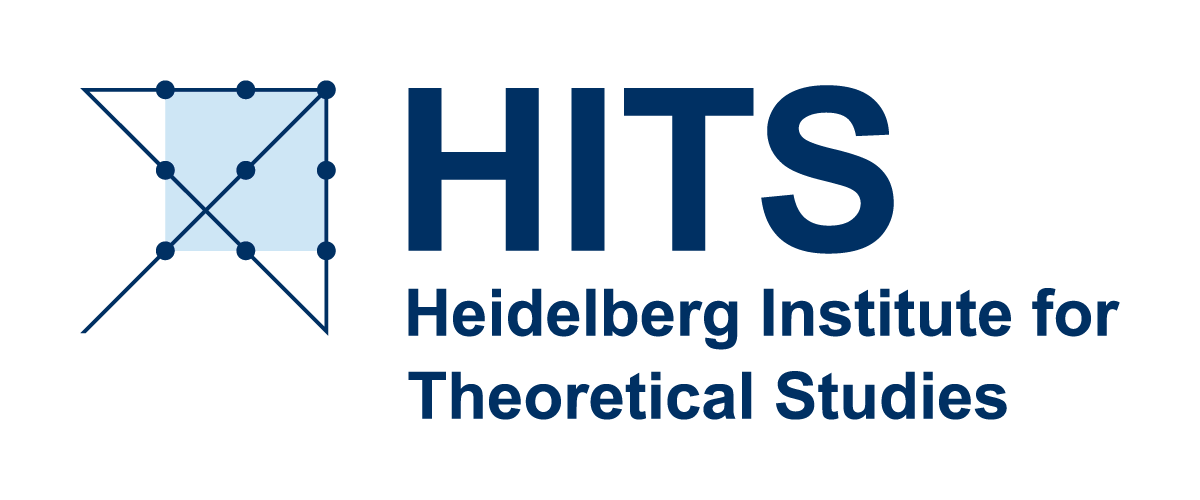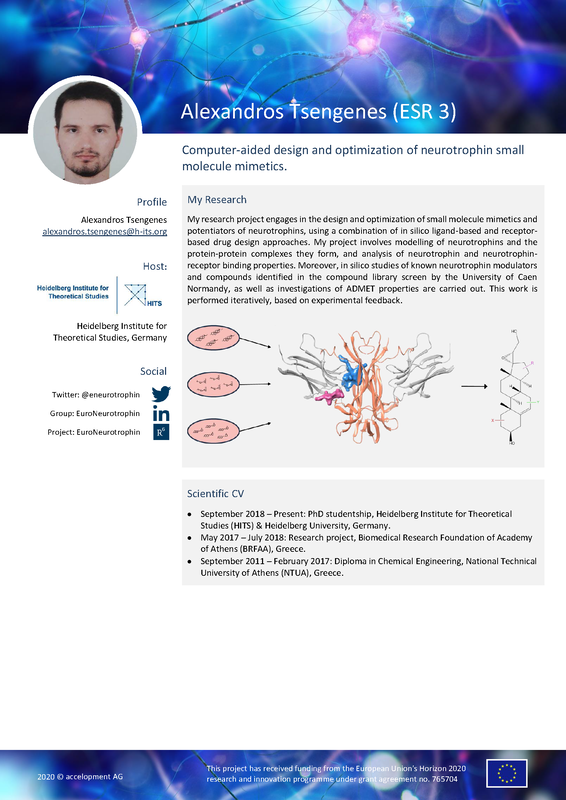ESR 3: Athanasios-Alexandros Tsengenes
|
Computer-aided design and optimization of neurotrophin small molecule mimetics
EuroNeurotrophin Research
Alexandros will engage in the design and optimization of small molecule mimetics and potentiators of neurotrophins, using a combination of in silico ligand-based and receptor-based drug design approaches. Alexandros’ project will involve modelling of neurotrophins and the protein-protein complexes they form, and analysis of neurotrophin and neurotrophin-receptor binding properties. Moreover, in silico studies of known neurotrophin modulators and compounds identified in the compound library screen by UNICAEN, as well as investigations of ADMET properties will be carried out. This work will be performed iteratively, based on experimental feedback. Host B2: HITS gGmbH, Heidelberg Institute for Theoretical Studies, Germany Supervisor Prof. Rebecca Wade, HITS gGmbH, Molecular and Cellular Modeling Group Scientific Background Athanasios-Alexandros Tsengenes holds a Diploma in Chemical Engineering from the National Technical University of Athens (NTUA), Greece. His Diploma thesis was carried out at the National Hellenic Research Foundation (NHRF), Greece, in collaboration with the Laboratory of Organic Chemistry of the School of Chemical Engineering, NTUA, Greece, and it involved utilizing different molecular docking protocols and organic synthesis for the development of novel coumarin analogues as inhibitors of 5-lipoxygenase, an enzyme implicated in various inflammatory diseases. After obtaining his Diploma, Alexandros held a Research Student position at the Biomedical Research Foundation of Academy of Athens (BRFAA), Greece, where he studied different Free Energy Perturbation (FEP) techniques for lead optimization, utilizing multiple molecular dynamics software packages, and participated in the generation of an automated procedure for relative binding free energy calculations using NAMD/FEP. In September 2018, Alexandros joined the EuroNeurotrophin Network as a PhD student at the Heidelberg Institute for Theoretical Studies (HITS). |




